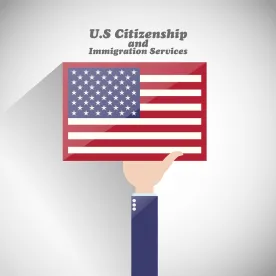USCIS has published a new Form I-485 with additional public charge questions required for use starting Dec. 23, 2022. When a nonimmigrant foreign national applies for an adjustment of status (AOS) to lawful permanent resident (Green Card holder), USCIS must determine whether that applicant is inadmissible on the grounds of being “likely at any time to become a public charge” unless exempt from this rule. See USCIS Public Charge Resources. A public charge determination is based on someone’s likelihood of becoming primarily dependent of the U.S. government for subsistence, typically through public cash assistance or long-term institutionalization at the government’s expense. Specifically, USCIS considers an applicant’s receipt of past and/or current public cash assistance including Supplement Security Income (SSI); Temporary Assistance for Needy Families (TANF) program; and state and local cash assistance programs (General Assistance programs) as well as whether the applicant has been institutionalized in a facility such as a nursing home or mental health institution when making a public charge ground of inadmissibility determination. USCIS does not generally consider noncash benefits (except institutionalization), or special-purpose cash assistance not intended for income maintenance when making public charge determinations nor will the agency consider benefits related to COVID-19 relief. See Id. If an applicant is found likely to become a public charge, USCIS can deny the AOS application.
In accordance with the requirements of the new Public Charge Final Rule, which went into effect Dec. 23, 2022, USCIS has required that all Applications to Adjust Status (Form I-485) filed on or after Dec. 23, 2022, use the latest edition of the form. The latest edition of the form, dated Dec. 23, 2022, includes additional questions responsive to the Final Rule.
When a nonimmigrant foreign national applies for an adjustment of status (AOS) to that of lawful permanent resident (Green Card holder) USCIS must determine whether that applicant is inadmissible on the grounds of being “likely at any time to become a public charge” unless exempt from this rule.[1] A public charge determination is based on an individual’s likelihood of becoming primarily dependent of the U.S. government for subsistence typically through public cash assistance or long-term institutionalization at the government’s expense. Specifically, USCIS considers an applicant’s receipt of past and/or current public cash assistance including Supplement Security Income (SSI); Temporary Assistance for Needy Families (TANF) program; and state and local cash assistance programs (General Assistance programs) as well as whether the applicant has been institutionalized in a facility such as a nursing home or mental health institution when making a public charge ground of inadmissibility determination. USCIS does not generally consider noncash benefits (except institutionalization) or special-purpose cash assistance not intended for income maintenance when making public charge determinations, nor will the agency consider benefits related to COVID-19 relief.[2] If an applicant is found to become likely to be a public charge, USCIS can deny the AOS application.
The updated Form I-485 contains approximately two pages of additional questions related to the applicant’s household size, income, and liabilities as well as the applicant’s education and skills such as certification, licenses, and work experience, etc.[3] Please contact your GT immigration attorney with any questions regarding the Public Charge Final Rule and the latest edition of the Form I-485.
[1] See USCIS.gov, Green Card Processes and Procedures – Public Charge Resources.
[2] Id.
[3] Id.



 />i
/>i

